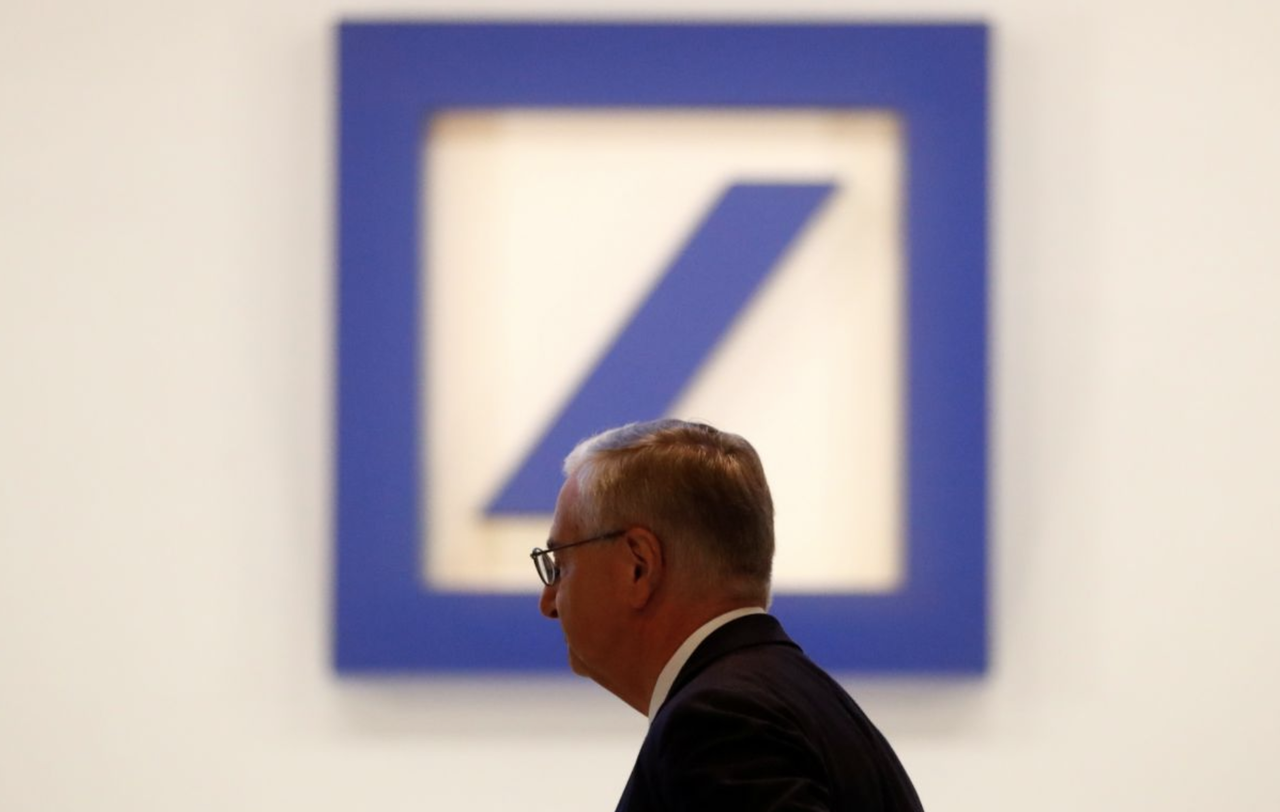Thanks to the Wall Street Journal, investors won’t need to wait until later this week for a promised update on the status of merger talks between Deutsche Bank and Commerzbank. Based on reports about Deutsche’s continued contingency planning, we can surmise that the answer to the question ‘how are deal talks going?’ is clearly ‘not well’.
Fresh on the heels of reports that Deutsche CEO Christian Sewing has been scrambling to prep a ‘Plan B’ to sell to investors should the merger between the two troubled German lenders fall through, WSJ reported on Tuesday that part of this planning includes the possibility of forming a ‘bad bank’ to house Deutsche’s most toxic assets and unprofitable business lines.
Deutsche’s troubles have persisted for years. So why are they only discussing this now? Well, because, as WSJ reports, Deutsche’s troubled investment bank is creating more headaches during the merger talks than executives had initially anticipated, which seems more like an issue of unrealistically rosy expectations than anything else.
Deutsche Bank for years has been retooling its strategy and management, promising to reinvigorate profits, repair compliance weaknesses and cut rising costs. Executives insisted publicly up until late 2018 that the bank should only consider deals after it heals itself. Now, deep into merger talks, it is looking at a potentially bigger cleanup effort than it previously signaled.
Planning for a possible no-deal outcome has taken on greater urgency at Deutsche Bank as merger talks have proven more complicated than proponents originally expected, the people said.
Of course, even if Deutsche follows through with these plans, it doesn’t necessarily mean that a merger will be dead in the water. It could even help facilitate a deal.
A new unit for disposing of assets and discontinued operations – a so-called bad bank – could be used flexibly, whether Deutsche Bank strikes a deal or not, some of the people said. A merger would likely require Deutsche Bank to make sizable cuts to parts of its investment bank, narrowing the scope of businesses to focus resources on more-profitable areas as part of a strategy overhaul, some of the people said.
But as major DB shareholders have demanded cuts to its investment bank, particularly its troubled US equity trading franchise, and to a lesser extent its European equity trading business, it’s looking increasingly likely that DB is going to need to find a way to quickly shed its most problematic businesses and assets – or at least find a way to cleave them from the rest of the bank.
DB has tried the ‘bad bank’ model before with its infamous ‘noncore operations’ unit. But the fact that this is again under discussion shows just how difficult it will be for Deutsche to rid itself of these assets and businesses.
A new bad-bank unit would allow Deutsche Bank to wall off business lines it intends to close or de-emphasize as well as positions that take time to sell or run down. Deutsche Bank previously had a similar unit called noncore operations that it used to dispose of unwanted assets, many of them dating to the financial crisis. That loss-making unit reported revenues and other financial details distinct from the bank’s core businesses.
Deutsche Bank closed the noncore unit in late 2016. In March 2017, the bank launched a share sale to raise €8 billion in capital. In the process, it designated a new pile of around €20 billion in risk-weighted assets as “nonstrategic.” They were earmarked to be run down within the investment bank rather than as a new separate unit.
The return of discussions about a noncore unit highlight Deutsche Bank’s continued difficulties in streamlining and cutting costs to focus on businesses where it has a competitive edge.
With more stakeholders – including the two banks’ powerful unions – opposing the deal, it’s hardly a surprise that German Finance minister Olaf Scholz’s quest to create a German ‘national champion’ to support Germany’s exporters appears to be in serious jeopardy.
Earlier, the FT reported the UBS was in talks to fold its asset-management unit into DB’s majority-owned asset-management subsidiary DWS, the most profitable of the bank’s businesses (though it’s technically a separate company).
Meanwhile, twitter wits couldn’t help but crack a few well-deserved jokes after seeing the WSJ headline flash.
“Deutsche Bank Considers Forming ‘Bad Bank” https://t.co/BiZQy2BBLF via @WSJ
BUT WHAT SHOULD THEY CALL IT? OH WAIT, I KNOW…
HOW ABOUT “DEUTSCHE BANK”?
— Mark B. Spiegel (@markbspiegel) April 23, 2019
And with DB earnings just around the corner, we imagine we’ll know more about the fate of the ‘merger of weakquals’ soon enough.
via ZeroHedge News http://bit.ly/2GEg72P Tyler Durden
